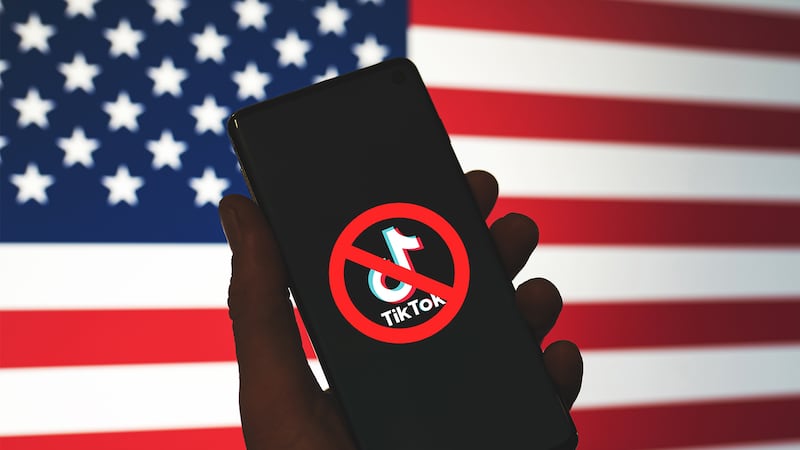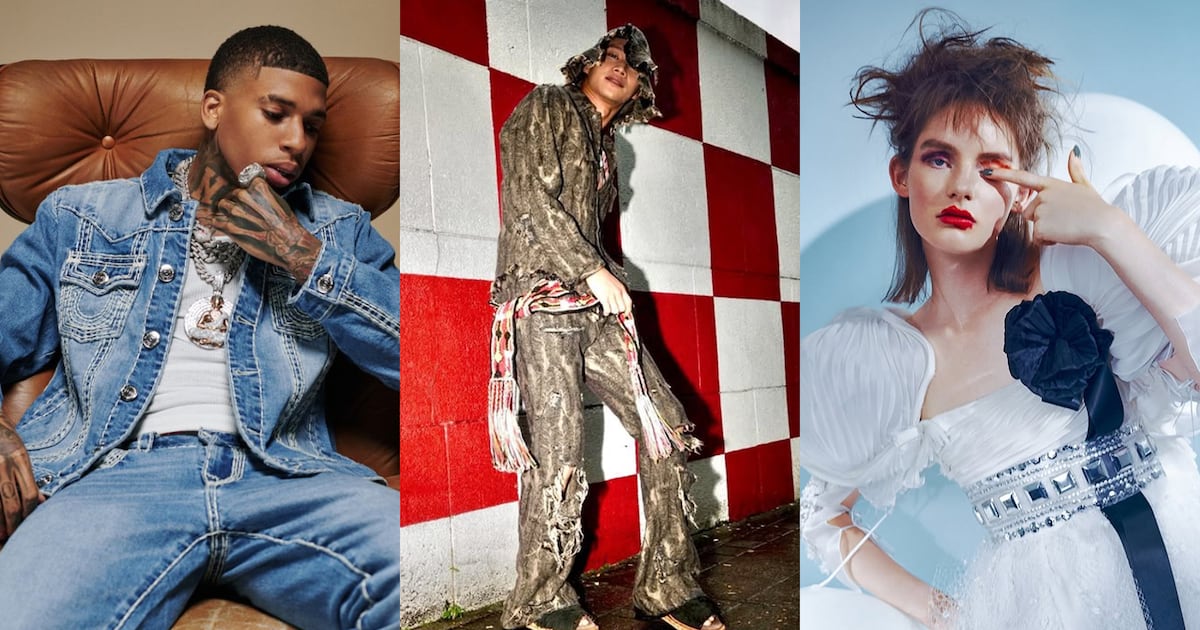Fashionâs M&A drought is over.
In the first 10 days of 2025 alone, private equity firm Acon Investments bought denim brand True Religion; French couture house Christian Lacroix was acquired by Spanish manufacturer Sociedad Textil Lonia; brand management firm Marquee Brands bought lifestyle company Laura Ashley; and French luxury childrenswear brand Bonpoint was sold to Chinese conglomerate Youngor Group.
The flurry of activity follows December deals including L Cattertonâs majority stake in Japanese menswear label Kapital. British shirtmaker Thomas Pink was sold to CP Brands Group and brand management firm WHP Global acquired Vera Wang. The Nordstrom family took their department store chain private with the help of Mexican retailer El Puerto de Liverpool.
While most of these deals were small, itâs been years since weâve seen so many brands change hands in such a short timespan. Thatâs not for lack of trying. There were always plenty of brands looking to sell, from direct-to-consumer start-ups to decades-old heritage labels. And buyers, whether luxury conglomerates, private equity or licensing firms, had plenty of cash. But high interest rates, an uncertain outlook in many corners of the fashion market, and a volatile economy effectively froze the M&A market.
That logjam appears to be breaking.
It started in September, when the US Federal Reserve cut interest rates for the first time since the pandemic, signalling it believed it had won its war against high inflation. Strong US holiday sales boosted dealmakersâ optimism that American shoppers would keep spending. The prospect of a business-friendly Trump administration, and the departure of Lina Khan from the Federal Trade Commission â after killing Tapestryâs bid for rival Capri â is boosting confidence too.
And yet, itâs too early to say that 2025 will be a big year for fashion deals. Interest rates remain elevated, and the economic outlook remains opaque. How business will fare under President Donald Trump remains to be seen. This is why most of the companies bought and sold in recent weeks are fairly small, often (though not exclusively) involving licensing firms that hope to extract returns from brands that have seen better days. This weekâs formation of a new brand management firm, Catalyst Brands, by merging the owner of Brooks Brothers and Forever 21 with JC Penney, indicates that investors see plenty more such deals in the future.
The lack of deals involving the hottest brands is a sign that buyers and sellers remain at odds over what a fashion company is worth in 2025. Missing from the recent spate of M&A activity was an exit by a top-tier, late-stage start-up such as Skims or Vuori, both of which have multi-billion-dollar valuations. Alo Yoga, t-shirt maker True Classic and others are also reportedly seeking 10-figure valuations when they sell or IPO.
Many founders and early investors in start-ups like those are still hoping that valuations will edge closer to their peak in 2021, when near-zero interest rates sent cash piling into high-risk, high-reward investments. Investors who spoke with BoF say thereâs ongoing conversations with brands and potential buyers, raising hopes that some big exits are in the works. But we may have a while longer to wait.
For those deals to happen, both sides need to give up on some unrealistic expectations. Buyers canât keep undervaluing brands out of fear that a recession or start-up crash is around the corner. DTC start-ups must accept that it will never be 2021 again. If they want to ensure a high sale price, they need to convince buyers of their brandsâ longevity, in addition to profitability. Kapital, for one, spent 40 years building a rabid fan base obsessed with its daring craftsmanship before it was sold to L Catterton. Perhaps some of the buzzy upstarts will settle for more realistic valuations if they can find buyers with the right tools to help them drive long-term desire for their products.
â[Acquirers] are understanding that these upstart brands are cultivating a customer base that their existing brands canât get to,â said Brent Vartan, managing partner at investment firm and creative agency Bullish, which backs early-stage brands like activewear label Bandit Running and skincare start-up Bubble. âThe value in a brand is the extent to which someone truly loves this product or service.â
THE NEWS IN BRIEF
FASHION, BUSINESS AND THE ECONOMY
Y/Project is officially shutting down. After 14 years in business, the Parisian label is shuttering after a tough financial year. Local fans turned out in force for recent clearance sales in Paris as the brand worked through excess stock before shutting off its e-commerce site and ceasing operations this week.
Elyse Walker and Palisades Villages area businesses damaged by California fires. The Palisades Village mall, home to luxury brands including Saint Laurent and Bottega Veneta, was mostly spared but the flagship location of fashion retailer Elyse Walker was lost to the fire. Other retailers located in Palisades Village have not yet received information on the status of their stores.
L Catterton takes majority stake in Kapital. Neither party announced the deal but Reddit users noticed L Catterton had added the Japanese brand known for denim to a website listing brands in which it has a majority interest. Kapitalâs new majority stakeholder arrives shortly after its founder, Toshikiyo Hirata, passed away in April 2024.
Christian Lacroix is acquired by Sociedad Texil Lonia. Through the transaction, Christian Lacroix will become stablemates with Spanish label Purificación GarcÃa and Carolina iHerrera diffusion line CH Carolina Herrera. The couturier Christian Lacroix will not be formally involved with the brand in an official capacity.
Sparc Group, Forever 21âs operator, merges with JCPenney. The new company, Catalyst Brands, was formed in an all-equity transaction between JCPenney and Sparc Group and its shareholders Simon Property Group, Brookfield Corp., Authentic Brands Group and SheIn Group Ltd. Catalyst will be headed by former JCPenney chief executive officer Marc Rosen.
True Religion acquired by private equity firm Acon Investments. SB360 Capital Partners, where American Eagleâs chief executive Jay Schottenstein serves as chairman, also participated in the deal. The acquisition will help the brand expand its product offering and global reach, the company said.
Chinaâs Yongor Group acquires Bonpoint. The French luxury childrenswear label was acquired from private investment firm EPI for an undisclosed sum. Youngorâs strong expertise in the Asian market will help the company continue its development under new ownership, EPI chairman Cristofer Descours said in a note.
Rolex and Patek Philippe used watch prices fell to three-year low in 2024. Rolex models dropped about 5 percent during the year, Patek prices fell 4 percent, and Audemars Piguet prices lost about 7.5 percent on the used market, according to Subdial. Cartierâs individual index has posted gains since January of 2023, rising about 4 percent in two years.
Shein representative declines to answer China cotton question in UK hearing. The representative would not shed light on its supply chain, a key issue for potential investors. According to sources, the ultra-fast fashion retailer is aiming to go public in London in the first half of 2025.
Uniqlo owner reports strong growth in all markets but China. Operating profit rose 7 percent to ¥157.6 billion ($1 billion) for the three months ended November from a year earlier, with sales increasing to an all-time high of ¥895.2 billion. Weaker consumer spending in China were also reasons for the sluggish sales in the first quarter.
Holiday sales hit a record $241 billion in the US, Adobe says. US e-commerce spending rose 9 percent sparked by widespread discounts. More than half of the total spent during the last two months of the year was on electronics, apparel and home goods.
Uniqlo, Gymshark and Lush stop hiring UK workers via gig economy apps. The Trades Union Congress wrote to the retailers urging them to stop using freelance retail workers amid concerns they were missing out on significant employment rights. Retailers recruited the workers for the busy festive period through apps, including YoungOnes and Temper.
Next to increase prices to help pay for budget tax changes. The fashion and homewares retailer will raise prices by 1 percent to help offset a £67 million ($82.5 million) rise in wage costs driven by tax changes. The 1 percent increase comes after Next raised prices by more than 7 percent in spring 2023 and 2 percent that autumn.
M&S reports strong festive sales. Clothing, home and beauty product sales grew by 1.9 percent in the 13 weeks to 28 December. M&S partywear sales were up on last year, while denim and knitwear outperformed.
THE BUSINESS OF BEAUTY

Ulta beauty partners with Instacart. Instacart has inked a partnership with the beauty retailer to offer same-day delivery from any of Ulta Beautyâs 1400-plus US doors. Customers will be able to shop cosmetics and supplements through the Instacart app and earn Ulta Beauty loyalty points.
PEOPLE

British Fashion Council names Laura Weir its new CEO. The Selfridges creative director, who brings experience from years working in fashion media and consulting for the sector, will take over from Caroline Rush at the end of April. Rush will continue to work at the organisation until June to provide time for a handover.
Ulta Beauty names insider Kecia Steelman CEO. Steelman replaces retiring chief executive Dave Kimbell in the top role. Steelman, currently president and operating chief of Ulta, has served in a variety of executive roles with the company since 2014.
MEDIA AND TECHNOLOGY

Billionaire Frank McCourtâs Project Liberty proposes a bid for TikTokâs US assets. The consortium said the financial capacity to complete the deal included expressions of interest from investors for sufficient equity capital, as well as debt financing from one of the largest banks in the US. McCourt and his firm Project Liberty formed the consortium last year to the buy social media platform.
AI-influenced shopping boosts online holiday sales, Salesforce data shows. Retailers turned to conversational chatbots to help consumers purchase and return products. AI influenced-sales rose to $229 billion of global online sales between Nov. 1 and Dec. 31 from $199 billion in 2023, the report said.
TikTok Shop rival Whatnot raises funds at $5 billion valuation. The livestream shopping platform raised $265 million in a funding round led by Greycroft Partners, DST Global and Avra. Last year, more than $3 billion worth of goods were sold on Whatnot, including sneakers, collectibles, vinyl records and handbags.
Condé Nast takes over Vogue Arabia and GQ Middle East from licensees. The publisher has appointed Amine Jreissati as head of editorial content at the regional edition of GQ and confirmed that Manuel Arnaut will continue to lead Vogue Arabia under the new structure. The transition was led by Thomas Khoury, Condé Nastâs Middle East managing director.
Compiled by Yola Mzizi.

